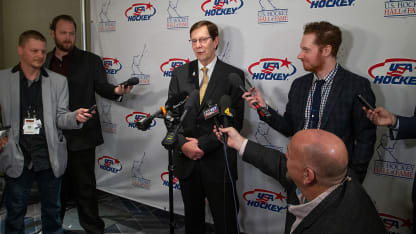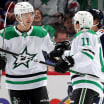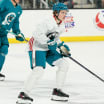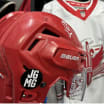Playing in Winter Classic 'icing on the cake' for Predators, GM says
Poile discusses growing sport in Sun Belt, outdoor game against Stars on Jan. 1 with NHL.com

© Frederick Breedon/Getty Images
Now it's about to become reality when the Predators and Dallas Stars play in the 2020 Bridgestone NHL Winter Classic at Cotton Bowl Stadium on Jan. 1 (2 p.m. ET; NBC, SN, TVAS).
"It will be really cool. And I'm not talking about the temperatures," the Predators general manager said in a recent phone interview.
Poile has been an NHL team executive for 48 years and is the only GM in the history of the Predators, whose first season was 1998.
"Since those first outdoor games were played, it was our hope and want to play in one of these games," Poile said. "The fact that it's in the south; the fact that it's Dallas, a [Central] Division rival who beat us out in the playoffs last year, I think it's going to be fantastic.
Road to the NHL Winter Classic Episode 1
"We're going to be taking a lot of people down there with us -- of course, families, parents and a lot of our staff for recognition and reward for everything they've done for us for our organization. My family with kids and grandkids will be there and it'll be a great chance for a photo op.
"This is a big thing for the Predators and our franchise, and we're really looking forward to it."
As the Predators prepare for their first appearance in an NHL outdoor game, Poile took time with NHL.com to discuss a number of related topics including the ascension of the sport in Nashville and how the 2020 Winter Classic symbolizes the way the NHL has established its footprint in The Sun Belt.
You've been part of an NHL front office since being hired as an administrative assistant by the Atlanta Flames in 1972. Given how much you've seen the League evolve over the years, is it surreal that we've come to the point where teams based in Nashville and Dallas will play an outdoor game in Texas?
"In 1998 when we first started the franchise in Nashville, a lot of things we thought about and had visions about included having success on the ice and building acceptance of your product in your city and the general area. This is kind of the icing on the cake when you get the recognition to be on national television with international audience on New Year's Day. Outside of the Stanley Cup Playoffs, it's probably the premier, if you want to call it, day or event for the NHL all season long. It doesn't get much better than this for our franchise and for the recognition it's going to bring for our city and for our team."
How far has the hockey culture evolved in Nashville since you first arrived there, not just in terms of the on-ice product and acceptance of the Predators but the team's influence in providing education about the sport and the resultant increase in participation at the grass roots level in the market?
"When you start in a place that is known as a non-traditional hockey city, you're more or less starting from scratch in terms of selling the great game of hockey to people that perhaps never played it in their life. Maybe they've never been exposed to it. Maybe they've never even watched a game on TV. So you go through all kinds of educational processes on and off the ice. You're building a foundation for your team in the community. The state of Tennessee is known as The Volunteer State. I didn't understand it when I first got there but I clearly understand it now. It's like we all know about charity: the more you give, the more you get.
"Our team, which includes our players and the people in our office, have totally participated in the community. I think that we're very well liked in Nashville and Tennessee not only for what we've accomplished in terms of putting a competitive team on the ice but also how much we are part of the fabric of Nashville and what it means to be a Nashvillian."
With the Winter Classic quickly approaching, do you ever think back to those early days and how much work lay ahead for the franchise?
"It was exciting at the beginning, and then there were some bumps in the road, the biggest bump being when Craig Leipold decided to sell the team (2007). That was a crossroads for our franchise because what that represented is that the fans lose their trust, there's a potential loss of sponsors and potential loss of a desire in players to want to play in Nashville. When that happened years ago, new ownership came in and from that time forward we've gotten better in everything that we've done on the ice and off the ice. It might have been a hard thing to hear and accept at the time but I think it's made us stronger than ever before.
"On the ice, we had a better product, we made the playoffs and then reached the Final in 2017. You can't really put a price on what that has done for our franchise. It was just unbelievable what that visually looked like for our franchise, with all those people gathered outside the arena for every game. It was exciting and I think everyone was very proud of our team. If there was one defining moment in our franchise history, that was it."
To your point, we're seeing players coming into the League from sun-belt locations like California, Arizona and Florida. With grass roots hockey in Nashville continuing to grow, could there be a blossoming pipeline of hockey talent from Tennessee to the NHL one day?
"Absolutely. It's going to happen. We just opened a new three-sheet rink in Bellevue (13 miles southwest of downtown Nashville) so more minor hockey, more adult hockey. I think the want is there if we can continue to establish our footprint in and around the Nashville area with a couple more rinks, it's just going to build the sport that much more. We're getting kids now at pretty elite level who are getting interest from colleges. So it's going to happen just like it happened in California and Arizona and Florida and Texas. I don't think we're that far behind. We're going to one day see a born-and-bred Nashvillian play in the National Hockey League, hopefully for the Predators."
A lot of players want to play in Nashville now and, as you mentioned, that wasn't always the case. Has that been one of the biggest changes over the years with your franchise?
"I think it's a situation like that old adage: What comes first, the chicken or the egg? Every player wants to be in a situation where the team will be competitive. We've been able to represent that well in the past few years. And then there are the other factors: families, location, the size of the city, friendliness of the city, cost of living. I know we're fortunate to be one of the states that doesn't have any state tax. When you add it all up, I think it's a pretty nice package. I think the All-Star Game in 2016 when you had all the players coming in with their families, I think that was a huge factor. Media-wise too, I think that was the biggest collection of international hockey media here and they saw Nashville at its best. Not just from the game but all the activities that surrounded the game. It's the real deal. And that's why Nashville has been called one of the 'In Cities' the past few years because there's so many good things going on. But it still has somewhat of a small-town feeling that a lot of our players' families really like."
Finally, when the Minnesota North Stars moved to Dallas in 1993, there had never been a real presence of NHL hockey -- specifically west of the Mississippi -- in the Sun Belt aside from California. Can you talk about the imprint the Stars franchise made as the League started reaching out into other southern markets like Nashville in subsequent years?
"Somebody has to have a vision for that and that goes far above me. It starts with [NHL commissioner] Gary Bettman and the ownership in terms of what they see for the future of hockey. Now we have hockey in California and Arizona and Florida and Carolina and Tennessee. (Chuckles). Not that far ago that didn't seem like something that was a formula for success. But here we go. For Nashville specifically 20 years later and for a franchise like Dallas that started playing there (in 1993), it takes a bit of time. We're all the same. It's building rinks. It's educating people on the game who have never played it before. It's a lot of things. It takes a lot of years. Often times, especially with expansion teams, you're not that competitive right away so that's made it hard.
"But I think now, with rules changes, the coverage we have nationally and internationally from the media, all the other forms of social media and what have you, it's getting to be normal now. It's Hockey Night in Texas. When you think about about it, there will be this next generation that will grow up and that's all they'll have known, that the Stars were in Dallas or the Predators were in Nashville. And there won't be any questions about the game's transition to the south like you're asking me now. It'll all be in the past tense."

















